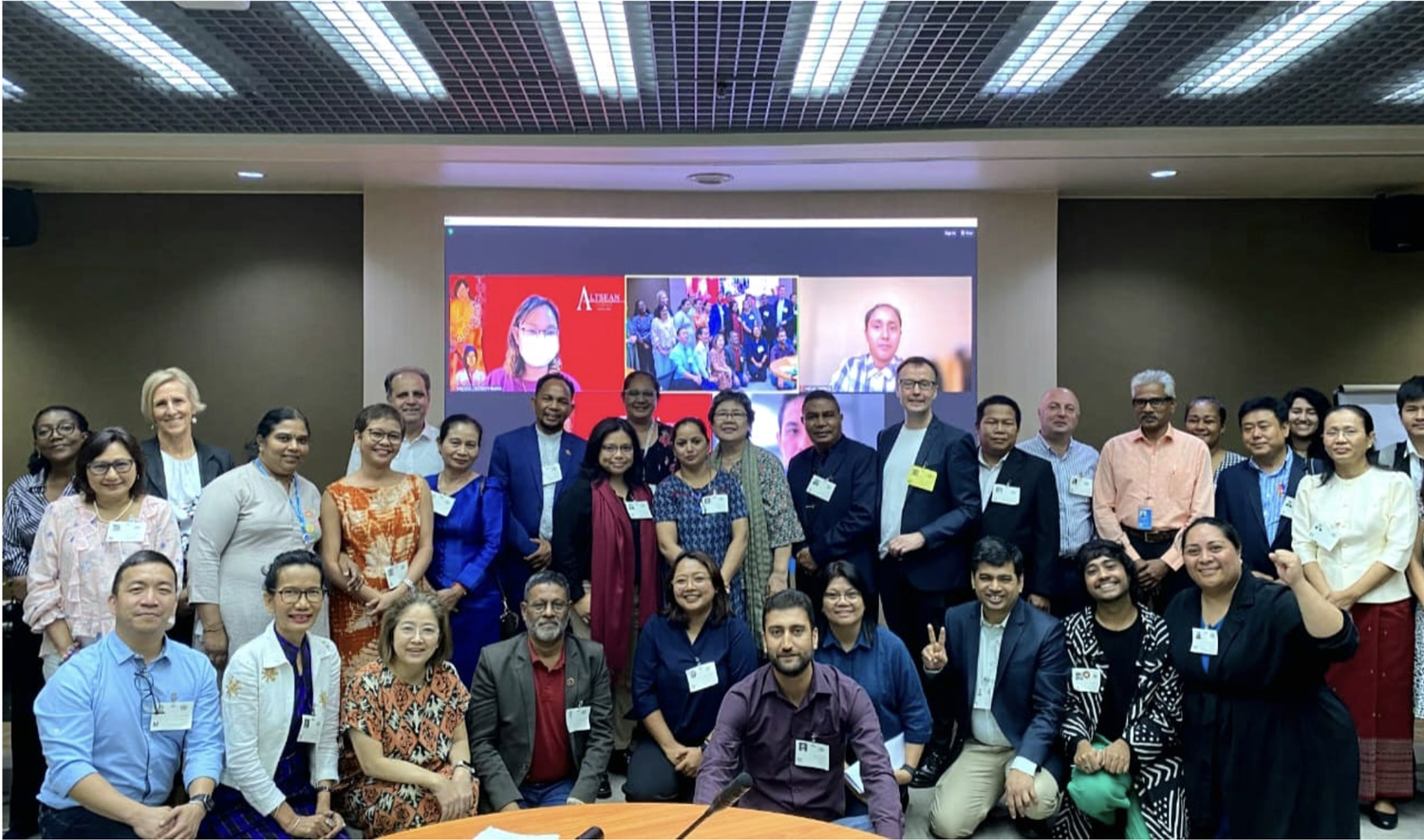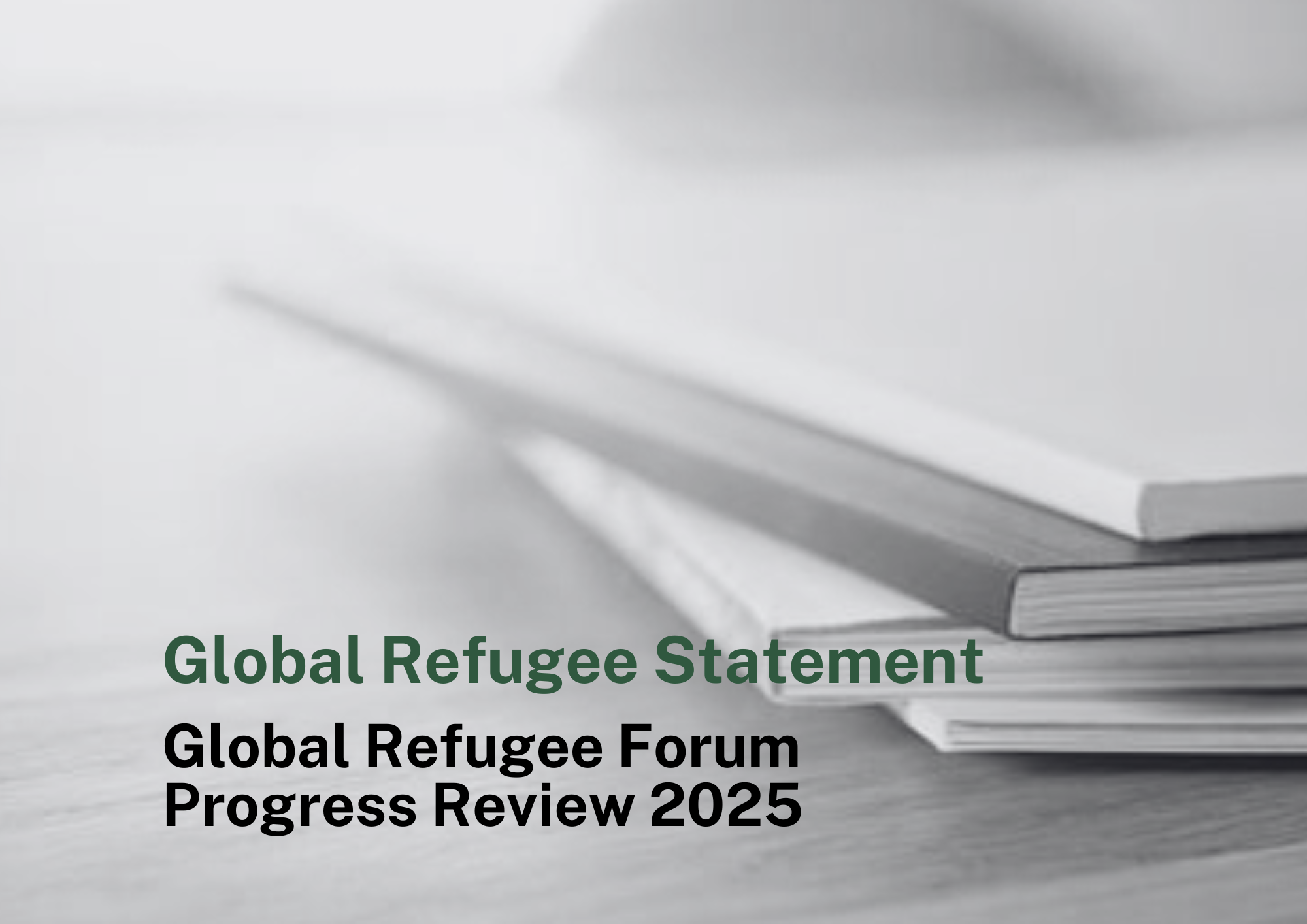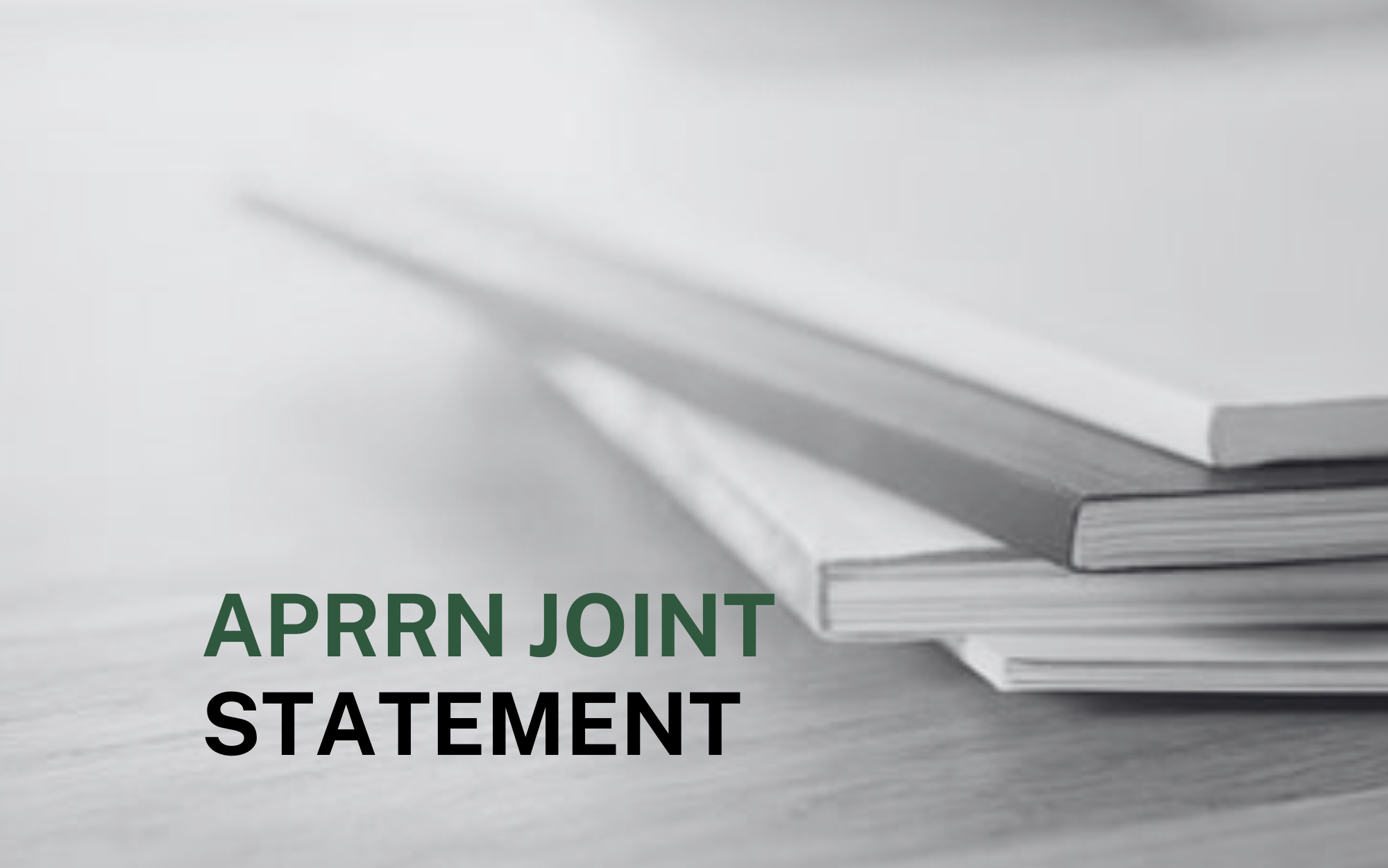Refugees and Migrants as Actors of Development: Bringing and amplifying migrants' and refugees’ voices in the population and development discourse
29 November 2023

Refugees and Migrants as Actors of Development: bringing and amplifying migrants' and refugees’ voices in the population and development discourse
APPC 2023 - UN ESCAP - Bangkok, 17 November 2023
#APPC7 #ForMigrantsWithMigrants #UpholdRefugeeRights #AmplifyMigrantsVoices #ParticipationIsARight
On November 17, 2023, the Asia Pacific Refugee Rights Network (APRRN) and the Asia Pacific Mission for Migrants (APMM) organised a 75-minute side event entitled “Migrants and refugees as actors of development: Bringing and amplifying migrants and refugees’ voice in the population and development discourse.” The side event was organised during the 7th Asia Pacific Population Conference (7APPC) held in the United Nations Building in Bangkok, Thailand.
Rey Asis, APMM’s program coordinator for advocacy and campaigns, welcomed the attendees, highlighting the importance of realizing migrants’ and refugees’ meaningful participation through continuous engagement and inclusion in various advocacy and capacity-building spaces.
Klaus Dik Nielsen, APRRN’s Co-Secretary General, facilitated the side event and steered 5 diverse speakers on important issues confronting their respective communities or areas of workaround population and development, highlights of good practice and recommendations to the 7APPC when it comes to the human rights of migrants, refugees, and other people on the move.
The contributions from the speakers were followed by a lively interaction with the 50+ participants who posed a range of questions and comments.
Below are some highlights of our speakers’ contributions:
Hafsar Tameesuddin
Asia Pacific Refugee Rights Network, Aotearoa/New Zealand
The two main countries with the big numbers of displacement happening right now are Afghanistan and Myanmar. Because of the ongoing issues in both countries, there are probably many people who are on the move, regular and irregular. By the end of 2022, there were three million people in the region. There are many more who can’t get the status of asylum seeker and refugee protection because of limitations in the country, like Thailand and others who did not sign the UN Convention 1951. Refugees in Asia Pacific are vulnerable, have no access to education, are not allowed to work, and have no legal protection. They are at risk of detention and deportation. They are at risk of serious prosecution, to be killed and tortured.
As a network, we do mainly collaboration work with our members to address human rights violation issues, like releasing press statements, education, and awareness. To be honest, the meaningful participation of people living with this experience has not always been easy. Reclaiming our space has always been a challenge because there is resistance to us. We are hoping this can be a showcase of existence in this space.
We need to create space for asylum seekers and refugees and invest in it. Sometimes we have unrealistic expectations without acknowledging the deprivation that the people have. There needs to be a whole-of-society approach.
Antonia Lilii
First Pasefika Fono Network, FIRST Union, Aotearoa/New Zealand
First Pasefika Fono Network works and supports migrants and families from the Pacific living and working in New Zealand. Many employers who hire migrant workers are anti-union, exploit their workers, put them in inadequate housing conditions, and deny them access to basic needs. Many of them cannot communicate with their families back home. Having a Pasefika person to intervene and work with them is important. They need to be treated as human beings and like family.
We need to be more inclusive towards the Pacific. During the 7APPC discussions, little or no data has been provided on the Pacific. Governments need to be more accountable to the people who work in host countries to ensure migrant workers are well protected.
May Kim
ALTSEAN-Burma, Thailand
To this day, more people from Burma/Myanmar flee and seek refuge in and outside the country due to the rising violence and atrocities caused by the military junta. Many asylum seekers and refugees did not get UN recognition. These vulnerable populations, internally displaced peoples or IDPs, and refugees became the target of human trafficking. They join people from Malaysia, the Philippines, and India who have been trafficked to the border of Myanmar. This is a serious human security issue. Public health remains an urgent issue as healthcare workers too are targeted by the junta. ALTSEAN Burma has initiated advocacy trips for Myanmar women to talk to women, children, and young people in refugee camps and provide education to them.
Oppression against refugees and migrant workers must stop. We need international organisations, donor groups, and civil society to be sensitive to the security and livelihood of refugees and their families so that they can contribute not only to their home countries but to the host countries as well.
Izza Leghtas
Regional Office for South-East Asia, Office of the United Nations High Commissioner for Human Rights, Thailand
From our perspective, working on the issues of migration, the human rights of migrants, and people on the move, participation is a right. In 2013, the UN started to consider the idea of human rights-based approaches to migration, and it really shifted how this issue is framed, which is rooted in human rights law. It focuses on the capacity of the duty bearers, which is the state, who agreed on human rights standards to fulfill their human rights obligation. On the other hand, migrants and people on the move have the right to participate. In that sense, participation is not a privilege. The process is just as important as the outcome when it comes to advocating human rights. We need to be proactive about including people on the move from various nationalities, ethnic minorities, and LGBTI persons.
We need to take into account people who are of irregular status and who face additional challenges and difficulties.
Katrina Capeding
Samahang ng mga Domestic Helpers sa Gitnang Silangan, SANDIGAN, Philippines
It is the right time to include migrants in the conversation about population and development. Our panelists have justly shared evidence of the general erosion of migrants' rights. However, we have to level off this conversation by recognizing the important contribution of migrants to both sending and receiving countries. Migrant workers contribute billions of dollars in remittances to their home countries. On the other hand, it is also migrant workers who take care of the aging and aged population. But when we analyze policies on population and development, the migrants are invisible. In the conversation about safe, orderly, and regular migration, we need to talk about expanding the meaning of forced migration. Forced migration happens as a result of climate crises, human trafficking, militarisation – and most commonly, the lack of decent work and livable wages in Asia Pacific countries.
When we talk about population and development, poverty eradication, sexual reproductive health, and rights, it is not enough to talk only about women’s concerns. We need to include women workers and farmers, women migrants, indigenous women – we have to recognise that there are layers of intersectionality that we will only see if we have their voices in the room.
We are calling on the UN Member States to address the root causes of forced migration by generating decent work and livable wages, as well as a holistic approach to sustainable, rights-based, and comprehensive reintegration for migrants and refugees.
Participants’ questions and comments:
From around 50 participants who attended mainly in-person and online, various questions, comments, and recommendations were raised, with a focus on highlighting promoting migrants’ health, labor, and human rights across the migration continuum, the deportation of Afghan refugees in Pakistan, the need for education, children of migrants and refugees, linking labor migration and refugee concerns, meaningful participation of migrants in the movement and advocacy spaces and building conversation between governments, civil society, and migrant communities.
The side event concluded with the organizers encouraging to continue the conversation among the governments, migrants and refugee communities, and civil society in pursuing and realising migrants and refugees' meaningful and effective participation. Email addresses were exchanged and we hope to be able to continue this important discussion.
Recommended

Dec. 15, 2025
Global Refugee Statement – Global Refugee Forum Progress Review 2025
Around the world, families are running out of places to go. The scale of global displacement remains extraordinarily high, with 117.3 million people forced to flee, not because they chose to move, but because staying meant persecution, violence, or the collapse of their basic rights and safety. Behind every statistic is a person who once had a home, a community, and a future rooted in the ordinary rhythms of life. This reality reminds us that the systems designed to protect people in times of crisis are under severe strain.

Sept. 22, 2025
Upholding Not Undermining International Law Civil Society Open Letter to States
In advance of this week’s UN General Assembly High-level meeting, speeches by Heads of State and Government and reported efforts to enlist UN Member States in an attempt to undo international legal protections for refugees, 271 civil society organisations released an open letter to UN Member States calling on them to uphold, preserve, strengthen, and celebrate international refugee, human rights, and humanitarian treaties—and to reject efforts to undo or undermine legal norms.

July 21, 2025
APRRN deeply saddened by the loss of Ravi Hemadri
For over 25 years, Ravi dedicated his life to community mobilisation, training, advocacy, and research. Our community of practitioners and advocates working on the rights of refugees and other vulnerable people on the move in Asia Pacific has lost a friend and colleague. But his legacy will continue to inspire those who worked with him. Our heartfelt condolences go out to his family and loved ones.